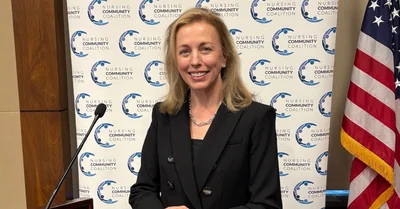The U.S. Environmental Protection Agency (EPA) and the Chickasaw Nation have signed a Memorandum of Understanding (MOU) to collaborate on the sustainable management of water, land, and air resources. This agreement aims to establish a framework for technical cooperation and coordination.
“The Chickasaw Nation has long been an important environmental partner of the EPA,” said Christopher Frey, Assistant Administrator for EPA’s Office of Research and Development. “This MOU provides a framework that allows us to jointly develop research strategies and identify mechanisms and approaches for sustainably managing groundwater resources in Oklahoma now and into the future.”
Governor Bill Anoatubby of the Chickasaw Nation expressed his satisfaction with the agreement: “We are pleased to sign this memorandum of understanding which will expand both our knowledge base and our capability for effective environmental stewardship. We are deeply grateful the Environmental Protection Agency shares our commitment to sustainable management of the natural resources so important to our quality of life today and to our efforts to build a brighter future for our children, grandchildren, and future generations. We look forward to working together with these agencies to ensure we utilize these resources wisely today and help preserve them for the benefit of our children and grandchildren."
The Chickasaw Nation is engaged in a water resource planning effort alongside the Choctaw Nation of Oklahoma. This initiative focuses on ensuring long-term sustainability of water resources within their treaty territory, encompassing research, community outreach, partnership activities, water conservation initiatives, water supply security measures, and drought resiliency efforts.
The MOU outlines several cooperative measures between EPA and the Chickasaw Nation. One key aspect is establishing positions such as a hydrologist from the Chickasaw Nation as guest researchers at EPA’s Robert S. Kerr Environmental Research Center in Ada, Oklahoma. This collaboration aims to enhance understanding of threats to the Arbuckle-Simpson Aquifer, which serves as a primary drinking water source for many residents.
These programs aim to support both parties in sustaining community health, meeting environmental protection goals, and providing sustainable resources for future generations. The new MOU builds upon previous agreements from 2008 and 2016.





